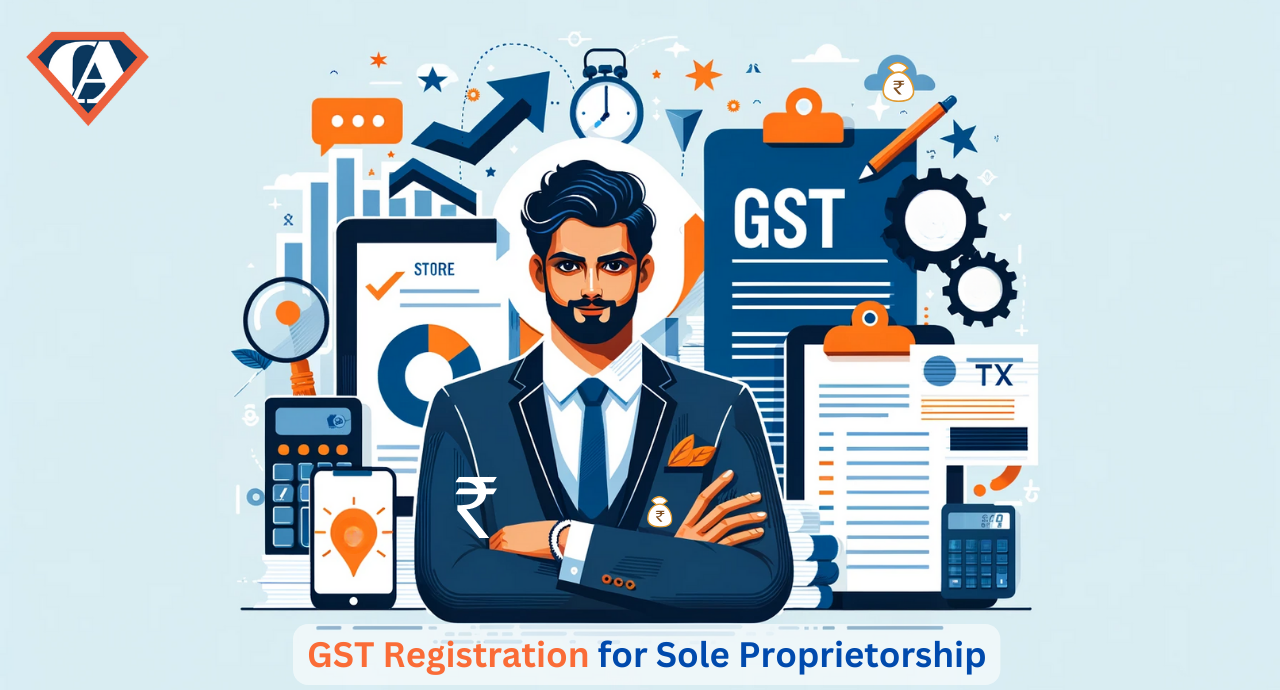From Beginning To End: The Ultimate Roadmap to GST Enrollment for Businesses Seeking Financial Stability
Browsing the complexities of Item and Services Tax Obligation (GST) registration is an essential step for services making every effort for financial stability. Breaking down the roadmap into manageable steps can streamline the registration trip for organizations looking to enhance their financial standing.
Comprehending GST Essentials
Exploring the essential principles of Item and Provider Tax Obligation (GST) is crucial for obtaining a thorough understanding of its implications on companies and the economy. GST is a value-added tax obligation levied on a lot of products and services for domestic intake. It has changed multiple indirect tax obligations that existed in the pre-GST period, simplifying the tax obligation structure and boosting simplicity of doing service in India. Under the GST system, both services and goods are exhausted at a specific price, which is figured out based on their category. If their yearly turnover exceeds the threshold limitation established by the federal government, companies are called for to register for GST. Input Tax Debt (ITC) is a substantial function of GST, permitting services to declare credit score for taxes paid on inputs, reducing the general tax burden. Recognizing the fundamentals of GST is critical for businesses to abide with tax obligation laws, handle their finances successfully, and contribute to the nation's economic growth by taking part in a clear tax system.
Eligibility Criteria for Enrollment
To sign up for GST, organizations have to meet specific eligibility criteria developed by the government. The primary eligibility need is that any kind of service entailed in the supply of items or solutions with an annual aggregate turnover above the threshold limit set by the authorities have to sign up for GST. Since the present policies, the threshold restriction for GST enrollment is an annual aggregate turn over of 40 lakhs for businesses operating within a state, except for unique group states where the restriction is 20 lakhs. In addition, particular organizations are required to sign up for GST irrespective of their turnover, such as interstate suppliers, casual taxable individuals, and businesses reliant pay tax obligation under the reverse fee mechanism. It is crucial for businesses to thoroughly assess their turn over and transaction kinds to identify their GST enrollment obligations properly. Failing to register for GST when eligible can lead to charges and legal effects, making it vital for companies to stick to the defined qualification standards.
Records Required for Registration
Having fulfilled the eligibility standards for GST registration, businesses need to currently guarantee they have the requisite documents in location to continue with the enrollment process efficiently. The papers required for GST enrollment generally include evidence of organization constitution, such as partnership deed, registration certification, or consolidation certificate for various kinds of services. Furthermore, organizations need to offer files establishing the major place of company, such as a rental arrangement or electrical power costs.
Step-by-Step Registration Process
Commencing the GST registration procedure involves a series of structured actions to guarantee a certified and smooth enrollment for organizations. The initial step is to see the GST portal and submit the registration form with precise information of business entity. Following this, the applicant obtains a Short-lived Recommendation Number (TRN) which is utilized to return to the application process if it's not completed in one go.
Following, all needed records based on the list given by the GST portal requirement to be uploaded. These files typically include evidence of company address, identification and registration evidence of promoters, monetary statements, and service entity's anchor PAN card.

Post-Registration Compliance Standards

Verdict
In conclusion, businesses seeking economic security must understand the essentials of GST, satisfy qualification requirements, gather needed records, comply with the detailed enrollment process, and follow post-registration guidelines - Best GST registration services in Singapore. By adhering to these steps, services can make sure compliance with tax obligation laws and keep monetary stability in the future
Additionally, particular services are required to sign up for GST regardless of their turnover, his explanation such as interstate suppliers, informal taxable individuals, and services liable to pay tax obligation under the reverse fee mechanism.Having actually satisfied the eligibility criteria for GST registration, organizations need to now ensure they have the requisite documents in area to proceed with the enrollment process effectively. The papers required for GST enrollment typically include evidence of service constitution, such as collaboration action, enrollment certificate, or consolidation certification for different kinds of companies. In addition, businesses require to supply documents establishing the primary place of company, such as a rental agreement or electrical about his power costs.Commencing the GST registration process entails a series of structured actions to make certain a certified and smooth registration for services.